
Greece & Churches of Revelation plus Cappadocia 18 Day First Class
Many departure dates year round.
Printable Itinerary Request a Quote
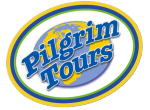
Wholesale Tour Packages Since 1987 - Call Us Toll Free: 800.322.0788

Many departure dates year round.
| Dates |
|---|
| Request a quote or call 800-322-0788 for more information. |
|
Ask About Special Rates for Pastors, Christian Educators, & Custom Groups of All Sizes. No Obligation Group Quotation - Click Here |
Click here for "Frequently Asked Questions"
Price Includes: First class (4 Star) lodging, breakfast and dinner daily, modern transportation, sightseeing as listed.
Not Included: Flight departures (low cost fares available nationwide), transfers (not included unless airfare is purchased from Pilgrim Tours), travel/cancellation insurance, gratuities, Turkey visa fee (U.S. $30.00 / Canada $60.00 USD) See information below.
Please Note: Turkey Entry Visas* must be secured in advance prior to arrival. Visas can be obtained in advance online at the link below.
*Turkey “E-Visa” online purchase - Click Here
Airport transfers are included only when airfare is purchased from Pilgrim Tours. Taxi service is available for those purchasing their airfare elsewhere.
Deposit Required: $300 per person will reserve your place. A $100 service fee will be charged for cancellation at any time in addition to our normal payment and cancellation policy.

Click on the days below for more information.
Today we depart on our Journey to the to the lands of ancient treasures and Christian history with an overnight flight to Thessalonica. Prepare yourself for a life-changing experience. Get some rest on the flight…Tomorrow you will be walking where the apostles walked!
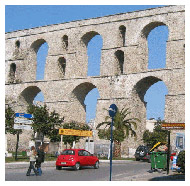
We transfer to our hotel in Thessalonica, Macedonia for the next two evenings. The New Testament books of I & II Thessalonians will come alive to us today. En route to the hotel we will view the old city ramparts; the newly excavated Forum, St. George Church, an ancient Roman monument which was transformed into a church and the Galerius Arch which rises over the famous Via Egnatia. The remainder of the day is free to relax and explore on your own.
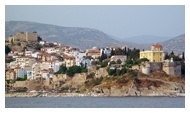
We begin the day by following the massive battlement Byzantine wall to the citadel for a panoramic view of the city. Next, we will visit Philippi and Kavala. Kavala is Greece's prettiest mainland port with a most elegant harbor. Paul landed here with his disciples, Timothy and Silas. Luke, the Evangelist, also came here from Troas. This ancient city of Neapolis was later renamed Christoupolis because it was the first European city to accept Christianity. Imagine walking on the same sod as these men of the Bible! We will see the Roman Aqueduct and the ruins of the Acropolis in this beautifully located city, known since the 5th century as Kavala. Continue on to Philippi where Paul preached his first evangelical sermon and baptized the first Christians on European soil. We will view the baptismal site where Lydia surrendered her life to Christ and visit a crypt dating from the Roman period that is thought to have served as a prison for Paul. See the famous Acropolis, the Market Place, Basilica, and the Theatre. We return to Thessalonica and visit St. Demetrius basilica, dedicated to a distinguished member of the Roman army and a martyred Christian convert before returning to the hotel for the night.

A stop will be made in Berea to view the Bema surrounded by newly placed mosaics of Paul and the plaque of scripture regarding the "more noble" church. We pass by the area of King Phillip's (Alexander's father) tomb in Vergina, with travel commentary on the Apostle Paul's teaching on the Priest King. This afternoon we see the world famous Byzantine monasteries that are perched precariously on summits of gray rock pinnacles of varied and beautiful shapes. Their history goes back to the 14th century when the monks sought refuge in the cliffside caves then fled higher to build the original wooden shelters, later transformed into monasteries. Our lodging this evening will be in Meteora.

From the mountains, our tour travels southward to the lovely mountain region of Delphi - the ancient sanctuary of Apollo. Here you will gain a greater understanding of the Greek religious heritage and their influence on the early Christian church. We also visit the museum where we will marvel at the site of the Charioteer, a bronze statue so delicate we will see his eyelashes. This afternoon we continue southward past Thermopylae and on to the city of Athens, the birth place of democracy.
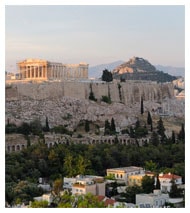
We visit the Acropolis, the Parthenon, and Erectheum before viewing Athens atop Mars Hill where Paul stood and preached the truth to the Gentile nation. Additional sites include the Agora (ancient market place and center of Athenian public life), the House of Parliament, the Tomb of the Unknown Soldier, Olympic Stadium, and Presidential Palace. A short walk from your hotel is the famous Plaka with a multitude of shops and cafes.
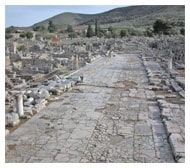
Departing Athens, we stop for a rest stop and photos at the Corinth Canal and then travel to the ancient city of Corinth, another treat for the New Testament scholar. Corinth is the city that inspired many of Paul's most familiar letters. See the Archaeological Museum, the Market Place, the Bema, and the Temples. To enjoy a devotional in the midst of the ruins of the church of Corinth and see the pillars, steps, and public worship place where Paul preached will enhance your understanding and love of I & II Corinthians. The ruins of this important cultural center are fascinating as we walk along the stone path that the Apostle Paul walked. The engineering skill and intellect of these people are evident in the water systems that still flow from ancient to modern day. Our guide will be sure to show you the room dedicated to the medical care of that period. Next, we travel to the top of the nearby Acropolis where our guide will speak on the worship practices and point out the bird’s eye view of what was a bustling city of around 800,000 during Paul’s stay. Before ending our day we visit Cenchreae, the ancient port region of Corinth. Acts 18:18, states the Apostle Paul stopped at Cenchreae during his second missionary journey, where he had his hair cut to fulfill a vow. We return to Athens for the evening.
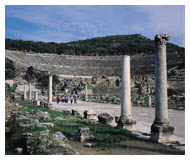
We fly from Athens to Izmir and transfer to our lodging for the evening. Izmir is the third largest city in Turkey and a long time center for Jews and Christians. In Paul's day, Izmir was known as Smyrna and was another of the Seven Churches (Rev. 2:8-11).
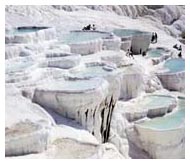
We have an early morning visit to the ancient Agora before departing Izmir traveling north to the highlight or our day; Pergamum. Once a busy trading center and famous as a "seller of purple," the most favored of the Seven Churches, the church of Pergamum was praised for its forbearance (Rev. 2:12-17). It was here that the first Christians were executed by Rome. We'll visit the fabled Acropolis, pass through the Royal Gates, view the foundations of the Temple of Zeus and visit the ruins of the library, which once held 200,000 volumes. Other things of special interest are the mountainside theatre, the series of underlying stone archways used to support agora, temple and acropolis areas. We travel inland to our lodging for the next two evenings in a lovely hot springs spa hotel in Pamukkale.

Hierapolis, meaning "Sacred City," was an ancient center for pagan cults until it was transformed into a Christian center in the first century. According to tradition, the Apostle Philip lived and was martyred in Hierapolis. It was likely the hot springs of Hierapolis in contrast to the cold mountain springs near Colossae that combined to bring application to the "luke warm" Laodiceans (Rev 3:14-22). This connection between the cities lies behind Paul’s reference to Hierapolis and Laodicea in his epistle to the Colossians (Col 4:13). Laodicea contains many acres of ruins to visit including a stadium and remnants of a sophisticated water system. Nearby Colossae is well-known throughout Christian circles as the receiver of Paul's letter to the Colossians. Time will be allowed today for you to take advantage of the many services offered by your spa hotel.
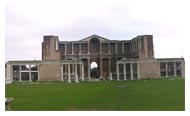
A stop will be made in Thyatira to view the ancient roadway and period columns en-route to Sardis. Sardis was berated by John for its facade of strength when in reality, it was weak (Rev. 3:1-6). Here coins were minted and the dyeing of wool originated. We'll visit the gymnasium and synagogue. Our next stop is nearby Philadelphia which was referred to as the "New Jerusalem" (Rev. 3:7-13) in the Book of Revelation. Not much is left of the city except for the ancient wall and the remains of a Byzantine basilica in the modern city of Alasehir. Our lodging for the next two nights will be in the charming seaside village of Kusadasi.
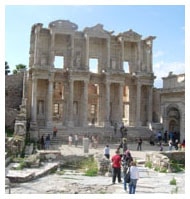
We travel to the nearby town of Selcuk for a visit to the Basilica of St. John, housing an immersion baptismal and believed to be resting place of John. From here we have an excellent overview of the Ephesus harbor, the Mosque of Jesus and the Temple of Artemis, completed in its most famous phase around 550 BC and listed as one of the Seven Wonders of the Ancient World. We spend the remainder of our day in Ephesus, the city of the Bible and one of the largest restorations still in progress with miles of ancient treasures. Ephesus was once a thriving port town of 250,000 people. Today you can still see the spectacular excavations of the major streets in this ancient city where we view the Library, Agora, theatre, colorful mosaics in the aristocratic Terrace Houses, a panoramic view of the surrounding ancient port area including a wealth of church history and cultural insight. The day will not be complete without a visit to a local Turkish Rug cooperative.

We transfer to the Izmir airport for our flight schedule to Cappadocia. Arriving in Kayseri, we transfer to our lodging for the next two evenings, where the remainder of the day is free for you to relax and enjoy a leisurely dinner.

We spend all day exploring the history and scenery of Cappadocia. First off, we’ll visit the gently folding volcanic rock formations and “fairy chimneys” of Goreme Open Air Museum. These rock formations are not only beautiful, but functional as well. Many early Christian communities lived and worshipped deep in the rocks and crags, leaving their frescoes and paintings to be marveled at centuries later. Other communities lived underground, and we’ll visit these dwellings too. To protect themselves from Roman persecution and marauding bandits, local people began to live in underground caves forming “cities” that reach a depth of up to 7 stories below the surface. Other sites include the Natural Citadel of Uchisar and the small, picturesque village of Avanos – famous for their red clay pottery. In Avanos we’ll visit “The Potter’s Place: Gift Shoppe and Cultural Center” and have time for visiting local potter for a demonstration and maybe try your own hand at the potter’s wheel.

Travelling westward, we stop at the Sultanhani Caravanserai just like travelers from Turkey’s bygone era. Founded for military and trade purposes, the Caravanserai’s Inn was built along the east-west trade route. We will have lunch near Konya, followed by an afternoon visit to Lystra, where Paul preached on his first missionary journey (Acts 14: 6-22). Our lodging this evening will be in Konya (ancient Iconium) included in Paul's first missionary journey. Nearly two thousand years ago, Paul and Barnabas visited Iconium during Paul’s first missionary journey. As he preached to the city, God used Paul to bring many Jews and Gentiles to Christ (Acts 14: 1-6). We will also visit the excavations of Catalhoyuk before transferring to our lodging for the evening in Konya.
Konya is also the home of the Mystic sect of the spectral Whirling Dervishes. We’ll have an opportunity to learn more about this mysterious order when we visit the museum of its founder, Mevlana, who is also known as the poet Rumi. We will continue to Pisidian Antioch – one of important stops on Paul’s missionary journeys. Although only 10% of Pisidian Antioch has been excavated, the ruins from the Roman period are noteworthy. We’ll see Septimus Severus’ triumphal gate, Augustus’ Temple, the Roman baths, a theater and a church dedicated to Paul. We transfer to the airport for our flight to Istanbul and our lodging for the next two evenings.
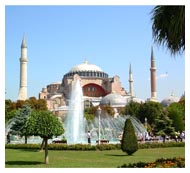
The tour today will be an unusual combination of Greek Orthodox, Roman, Ottoman and modern day Islam including entrance into the famed Blue Mosque and St. Sophia Church. After lunch we visit the fascinating Topkapi Palace housing the many priceless treasures and colorful stories of Ottoman Sultans. Istanbul, the largest city in Turkey is a thriving seaport and commerce center with a marvelous Bazaar allowing for a perfect opportunity to pick up those souvenirs and unique gift items. We return to our hotel for dinner and overnight.
This morning we transfer to the airport for our flight back home.